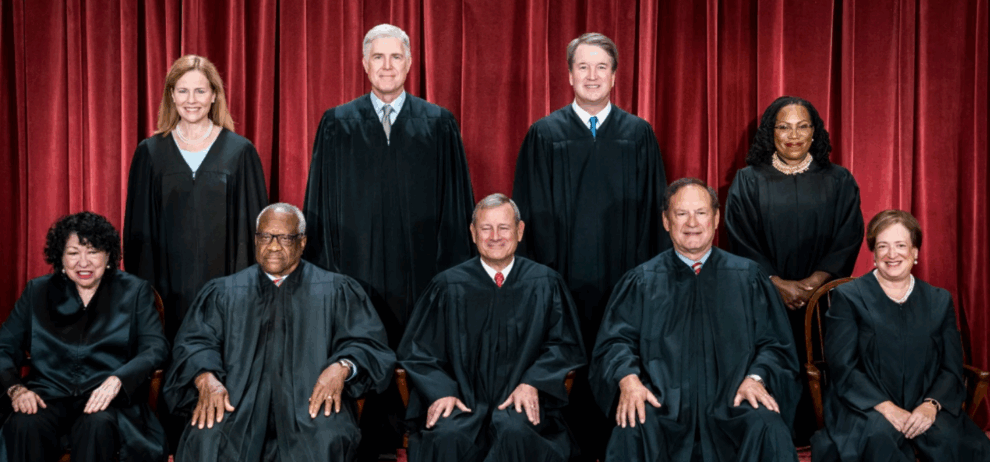The Supreme Court handed the Trump administration a victory by limiting nationwide injunctions in a decision that also featured a judicial smackdown of liberal Justice Ketanji Brown Jackson.
The Trump administration secured a major victory at the Supreme Court on Friday after the justices limited the ability of lower courts to issue nationwide injunctions to halt the president’s policies.
The issue nominally up for debate in Trump v. Casa was President Donald Trump’s executive order challenging birthright citizenship, but the Justices’ ruling was narrowly focused on the issue of nationwide injunctions, which have been on the rise since Trump’s first term.
“The injunctions before us today reflect a more recent development: district courts asserting the power to prohibit enforcement of a law or policy against anyone. These injunctions—known as ‘universal injunctions’—likely exceed the equitable authority that Congress has granted to federal courts,” wrote Justice Amy Comey Barrett for the court’s conservative majority.
The 6-3 ruling along ideological lines notably included a sharp rebuke of Justice Ketanji Brown Jackson, the court’s newest member and a Biden appointee, from Justice Barrett.
Barrett dismissed Jackson’s dissent in strident terms, writing, “We will not dwell on Justice Jackson’s argument, which is at odds with more than two centuries’ worth of precedent, not to mention the Constitution itself.” She added, “We observe only this: Justice Jackson decries an imperial Executive while embracing an imperial Judiciary.”
The Trump appointee took issue with Jackson’s argument that it is the role of the courts to stop the president from trying to “violate the Constitution” – without citing any existing legal doctrines or constitutional justifications. “She offers a vision of the judicial role that would make even the most ardent defender of judicial supremacy blush,” Barrett retorted.
Jackson’s decision to dismiss the majority’s citation of the Judiciary Act of 1789 – the founding-era legislation that created the federal judiciary – as mere “legalese” appeared to draw Barrett’s ire. Barrett wrote, “Because analyzing the governing statute involves boring ‘legalese,’ [Jackson] seeks to answer, ‘a far more basic question of enormous practical significance: May a federal court in the United States of America order the Executive to follow the law?’”
Barrett concluded, “In other words, it is unnecessary to consider whether Congress has constrained the Judiciary; what matters is how the Judiciary may constrain the Executive. Justice Jackson would do well to heed her own admonition: ‘[E]veryone, from the President on down, is bound by law.’”
“That goes for judges too,” Barrett wrote. This kind of public smackdown of a fellow justice is relatively rare, and it’s even more uncommon for five justices to sign onto their colleague’s direct attack on another member of the Court. It appears Justice Ketanji Brown Jackson’s arrival on the court has not been met with universal acclaim from the court’s conservative wing.





